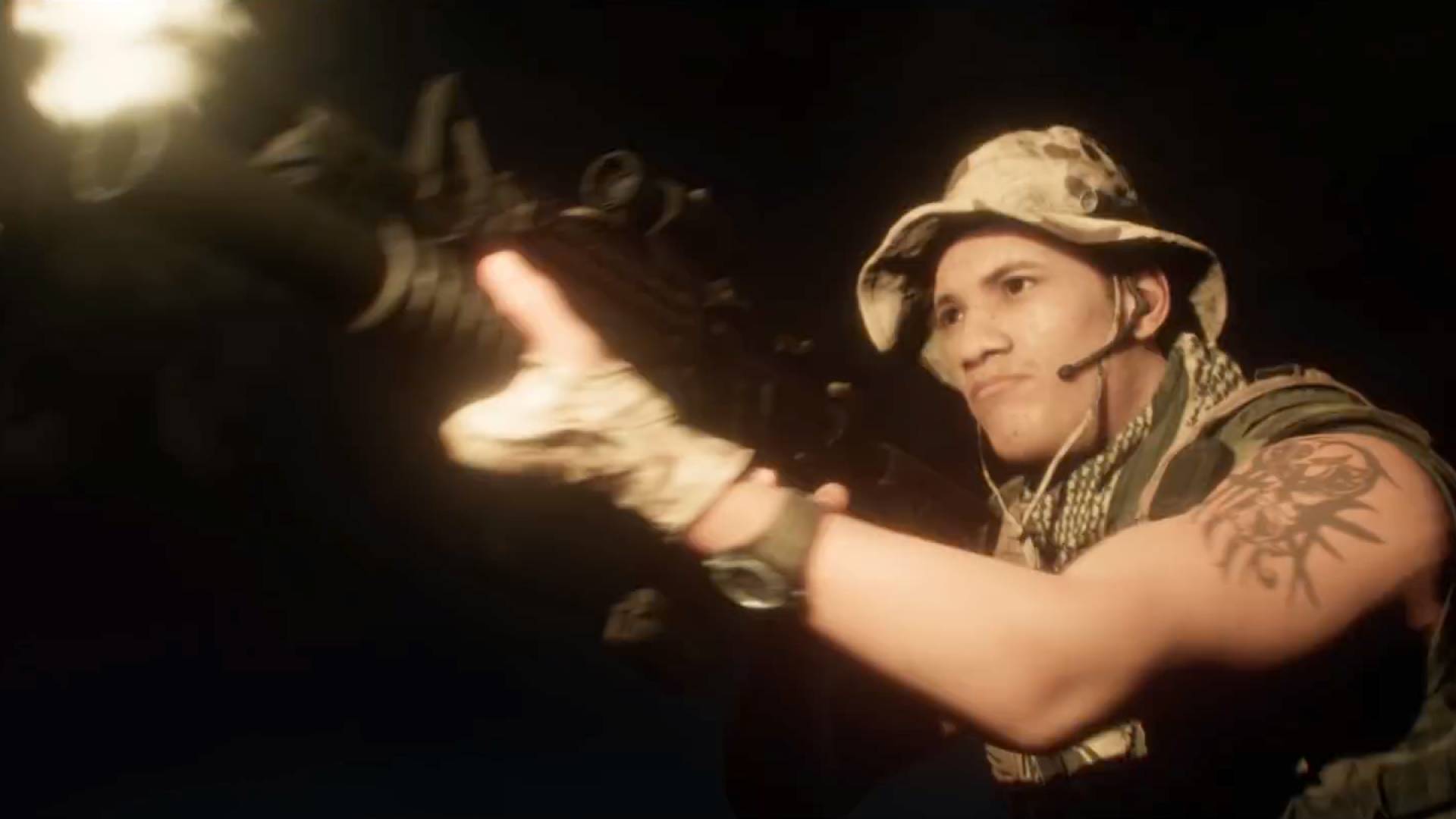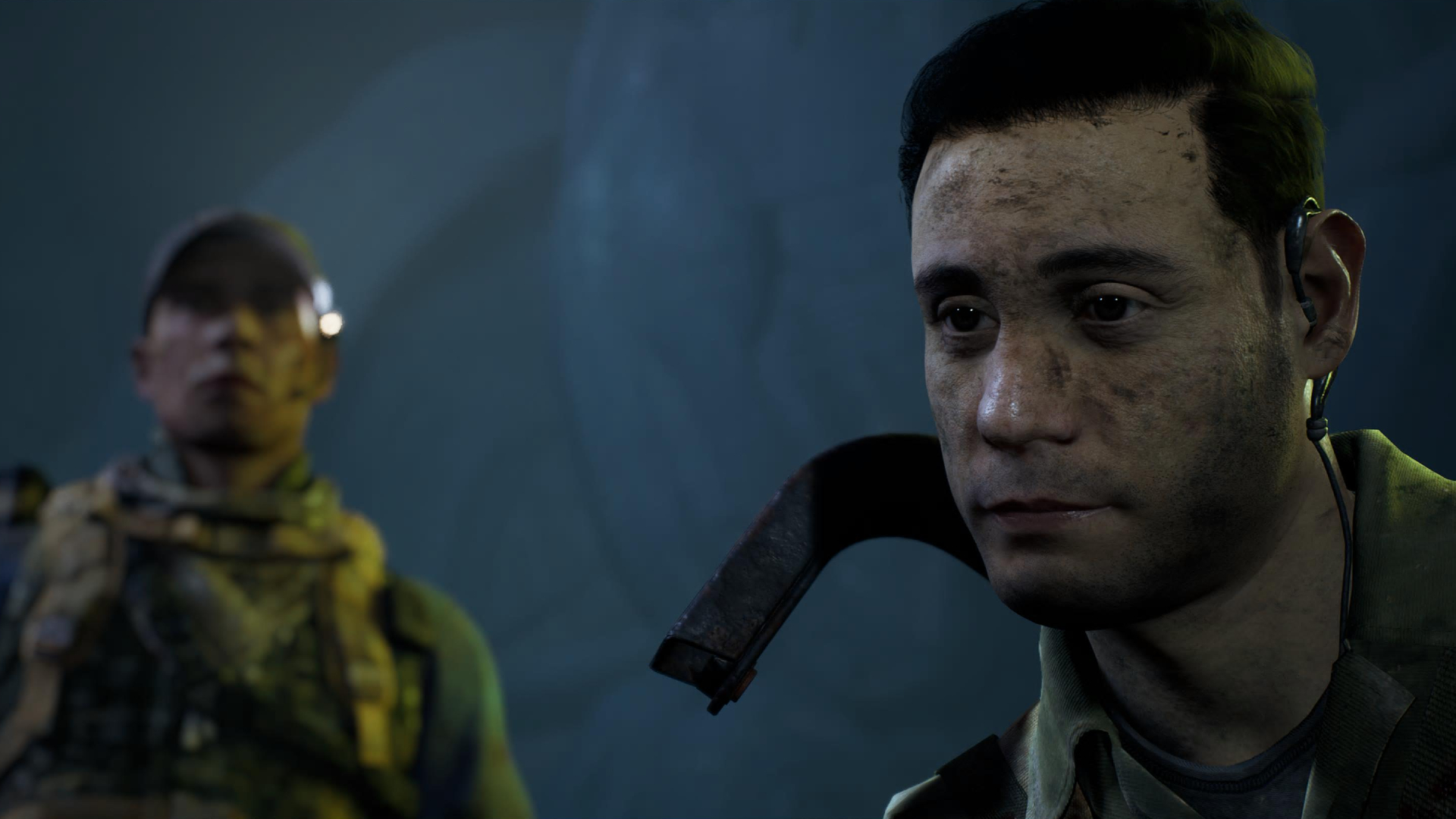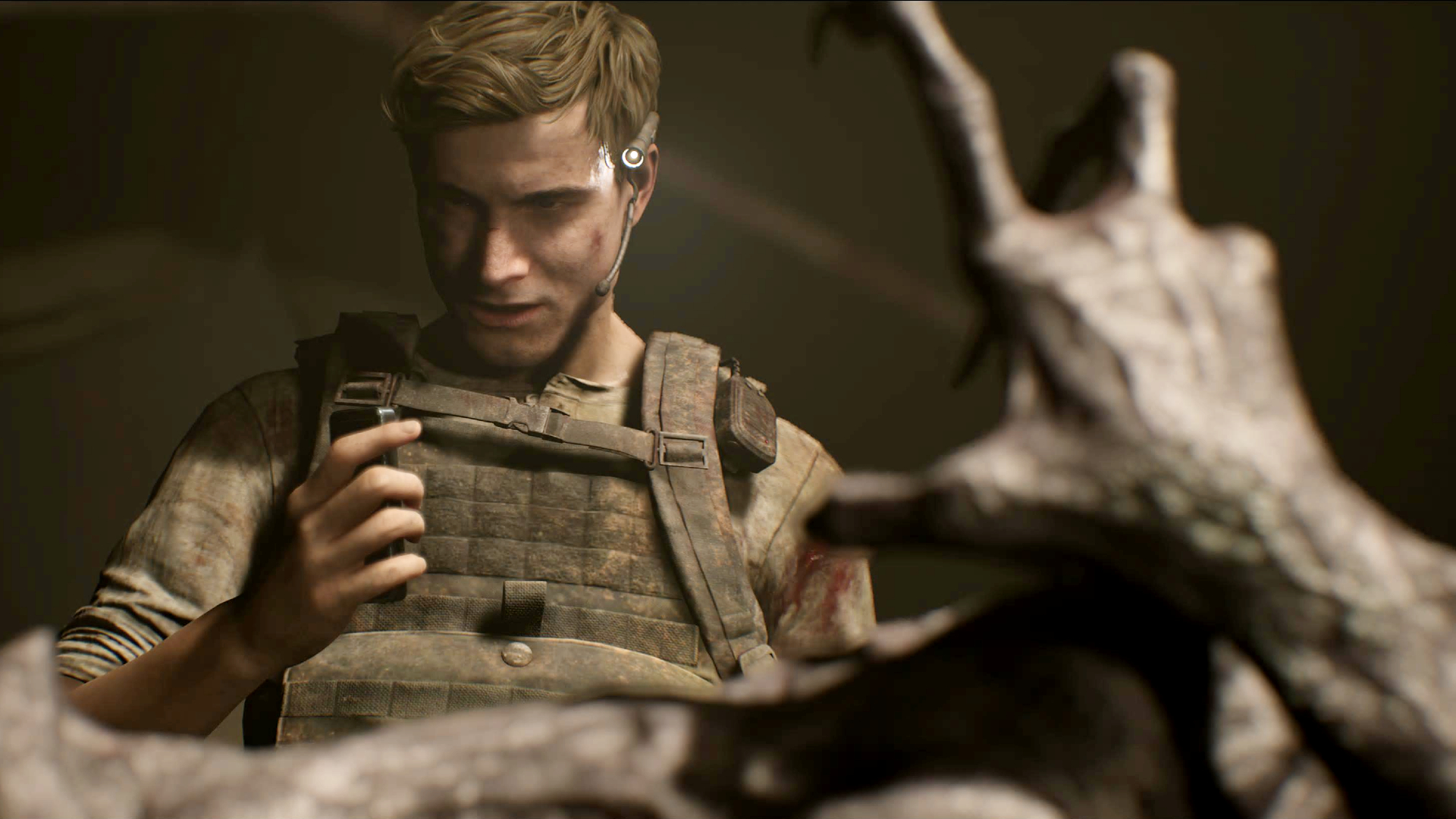GamesRadar+ Verdict
A lackluster military versus monsters soap opera that just about redeems itself with an extravagant final third and unmatched co-op mechanics.
Pros
- +
Rewards the faithful with a FUBAR final act
- +
Mo-cap tech makes for impressive visuals
- +
The co-op systems make playing with friends a breeze and a blast
Cons
- -
Too many talks and tunnels before the good stuff starts
- -
Mediocre monsters
Why you can trust GamesRadar+
The final act of The Dark Pictures Anthology: House of Ashes is what you want horror games to be, a mad casserole of monsters and weird science and tension. The problem is, your patience might not survive the long, often surprisingly dull trudge to get to it.
House of Ashes is the latest in the patchy Dark Pictures series and sets its sights on the Middle East with a story of US Marines looking for WMDs, who ending up finding something much worse. Trapped underground, they need to face not only the beasts hunting them but somehow also their own personal issues. Because that's when you want to talk about your relationship with your ex, when you're drenched in blood, have seen your companions horribly murdered, and only really have moments to spare before winged demons find you again. You can be a terrifying horror or an agony aunt letters page, you can't be both.

Release Date: October 22
Platform(s): PS5, PS4, Xbox Series X, Xbox One and PC
Developer: Supermassive
Publisher: Bandai Namco
You swap between controlling five characters, four Americans and an Iraqi soldier called Salim - who is the only likable one in the whole crew - as they team up, get separated again, team up, fight monsters, and bicker with each other. Like the Supermassive games that have come before, any of them can die and the game will just adapt the story and continue - unless you're so bad at people management that you get them all killed.
The game starts with a prologue setting up the historical events that lead to the shenanigans in the present day, and your input is so minimal you're basically free to make a sandwich. Then there are at least 30 minutes before you even get any horror, and instead have to trudge through a painful made-for-TV war movie that sets up the basic personality types - he's an arsehole, he's the smart mouth, she's the bitch etc - with soap opera style conversations as our gang of Marines raid a house, shoot some locals, and end up underground. Horror can make you feel a lot of things, dread, fear, discomfort, weird sexual stuff if you're a Clive Barker reader, but you should never feel bored. It seems to go on for so long that you're basically rooting for the monsters to start killing people horribly. The only thing that will make you uncomfortable during these opening hours is the way the game doesn't seem sure what comment it wants to make on the issue of American Marines in Iraq, fumbling story beats about heroin dealing, shooting unarmed civilians, and some pondering about "maybe war is bad?" like it's a high school essay.
Quick march

The game mechanics stick to the usual formula of quick-time events, dialogue options, and light exploration, and each success, failure, and choice can have unforeseen consequences as the story progresses. If you take the time to explore your environment you can find 'premonitions' - here in the form of ancient tablets - that will give your character a glimpse of the future that may help you make a crucial decision late on. It's a simple system of controls to understand, making it an accessible game to whip out for a Halloween party with less game-obsessed friends, but it's also a blunt set of tools that reduces your agency in the game to pick between a few options, often all of which you hate. Action is spaced about between long cutscenes, and sections where you're just moving a character through a room or tunnels, waiting for the next prompt to hit a button. The underground temple that serves as the setting has some impressive architecture but makes it hard to feel like you're wandering off the beaten path at any point. None of this will be news, or a deterrent, to anyone who has played a Dark Pictures game before, but it's worth mentioning as it doesn't feel like a system that's aging well here. At times House of Ashes felt more like one of those special Netflix interactive movies than a more traditional game.
One of the more interesting ways the game uses its QTEs is that you can decide to fail one for the right reasons. During one scene, for example, you have to cover a wounded soldier's mouth while you wait for his morphine to kick in, so he won't alert the monsters. Complete all the QTEs successfully though, and you actually smother him. It's a nice extra layer of decision-making if a little hard to remember for a generation of gamers that have trained their brains to follow QTE prompts instantly.
The good news is that the further you go into the game, the more it is about the monsters and less about whether or not your character wants to admit they might be emotionally closed off. The bad news is that there's only a couple of times they feel even close to frightening. No one is saying creature design is easy, but it's also that they just don't feel smart or intimidating enough to be truly terrifying. When you are facing the monsters, or the other threat that lurks in the dark, the mechanics of a QTE or a timed chance to shoot in their general direction distances you from any fear even further. Although, I do respect the decision not to make a game about armed soldiers into a scary shooting gallery, because it must have been tempting. The action is a better experience when played in the co-op versions of the game, with your friends screaming instructions, but solo it's just another QTE.
Semper fine

By the time you get to the third act, the bit where it all goes a bit mad and starts to actually feel fun, it's like you've been on a rollercoaster that spent 70% of the ride slowly chugging upwards, just to deliver the quick rush of that final drop. At this point, at least some of the characters (but not all) start to feel like at least good impressions of human beings, and you start to care about them making it beyond just wanting to beat the game with the best result. Salim the Iraqi soldier has a special place in my heart - mainly for the way he seems utterly baffled by his new American frenemies - and was the one I really wanted to save, while US Marine Jason Kolchek gets to give a speech showcasing motivations and nuance that made me wish there had been more of that to go around for the rest of the cast and story.
The game does deliver one last shiv to the kidneys though, with a final scene that is tougher and more unforgiving than anything else you faced in the game. It's classic horror movie stuff, but suddenly all the decisions you made to get the characters to that point feel totally immaterial, which seems like an injustice, rather than the big finale the developers might have been hoping for. Survive it and you will feel a diet version of triumph, fail and it will feel like a robbery.
Horror fans are no stranger to weak sequels, and we tend to have a soft spot for ongoing series even when they have a bad day, and despite the issues, the truth is that even at its weakest, The Dark Pictures Anthology offers a unique "trapped in a horror movie" experience that nothing else does, and is accessible enough to make for intense couch co-op with some friends. It's not a great horror game, but it's a decent horror game, and sometimes that will do.
The Dark Pictures Anthology: House of Ashes was reviewed on PS5 with code provided by the publisher.
More info
| Genre | Horror |

Rachel Weber is the former US Managing Editor of GamesRadar+ and lives in Brooklyn, New York. She joined GamesRadar+ in 2017, revitalizing the news coverage and building new processes and strategies for the US team.


